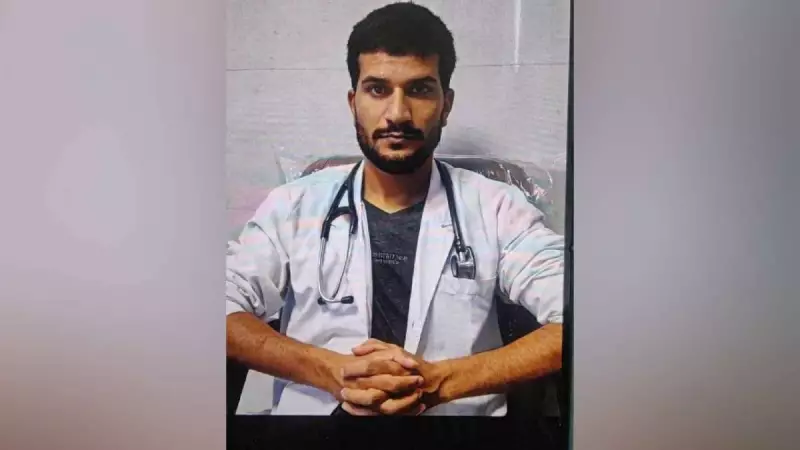
In a disturbing development that has sent shockwaves through India's security establishment, new evidence has emerged showing the suicide bomber behind the recent Delhi blast was dressed in a doctor's white coat, signaling a sophisticated shift toward white-collar terrorism.
The Chilling Discovery
Security agencies have obtained a new photograph that shows the alleged suicide bomber, identified as Umar Ghazi, wearing a crisp white doctor's coat moments before carrying out the devastating attack. The image reveals a well-groomed individual who could easily blend into professional environments, marking a significant departure from conventional terrorist profiles.
The photograph, captured by surveillance cameras in the vicinity of the blast site, shows Ghazi moving with purpose while disguised as a medical professional. This sophisticated approach allowed him to bypass initial security checks and reach the target area without raising suspicion.
Investigation Breakthrough and Timeline
The blast occurred on November 14, 2025, in a crowded market area of Delhi, causing significant casualties and property damage. According to investigative sources, the attack was meticulously planned to exploit the trust typically afforded to medical professionals in public spaces.
Security agencies have pieced together Ghazi's movements in the hours leading up to the explosion. The bomber arrived at the location dressed in the medical attire, carrying explosives concealed within what appeared to be medical equipment or supplies. The disguise provided him with both camouflage and unrestricted access to the target area.
Forensic analysis of the blast site has confirmed the use of sophisticated explosive materials, suggesting the involvement of experienced bomb-makers. The investigation has expanded to include medical supply chains and possible accomplices who facilitated the bomber's access to professional attire.
White-Collar Terrorism: A New Threat Paradigm
Security experts are describing this development as a dangerous evolution in terrorist tactics. The use of professional disguises represents what intelligence officials are calling white-collar terrorism - where attackers adopt the appearance of respected professionals to bypass security measures.
This approach poses unprecedented challenges for security agencies, as traditional profiling methods become less effective against terrorists who can seamlessly integrate into professional environments. The doctor's coat disguise specifically exploits the inherent trust society places in medical professionals.
Intelligence sources indicate that this sophisticated modus operandi suggests the involvement of well-organized terror networks with significant planning capabilities and resources. The choice of disguise demonstrates a deep understanding of psychological operations and urban security vulnerabilities.
Security Response and Preventive Measures
In response to this new threat, security agencies across major Indian cities have been placed on high alert. Enhanced surveillance measures are being implemented, particularly around sensitive locations where professionals in uniforms typically have access.
Security protocols are being revised to include more rigorous verification processes for individuals wearing professional uniforms in sensitive areas. Law enforcement agencies are coordinating with professional associations, including medical councils, to establish verification systems and reporting mechanisms.
The Home Ministry has convened emergency meetings with state police chiefs and intelligence heads to develop counter-strategies for this emerging threat. Security at hospitals, medical facilities, and educational institutions is being strengthened, given the ease with which professional attire can be obtained in these environments.
Public awareness campaigns are being prepared to educate citizens about maintaining vigilance while balancing the need to trust legitimate professionals. Security experts emphasize that while verification processes must be strengthened, the fundamental trust in professional relationships should not be completely eroded.
The investigation continues to pursue all leads regarding the terror network behind this attack, with multiple agencies working to identify and neutralize any additional threats following this disturbing new pattern of white-collar terrorism.





